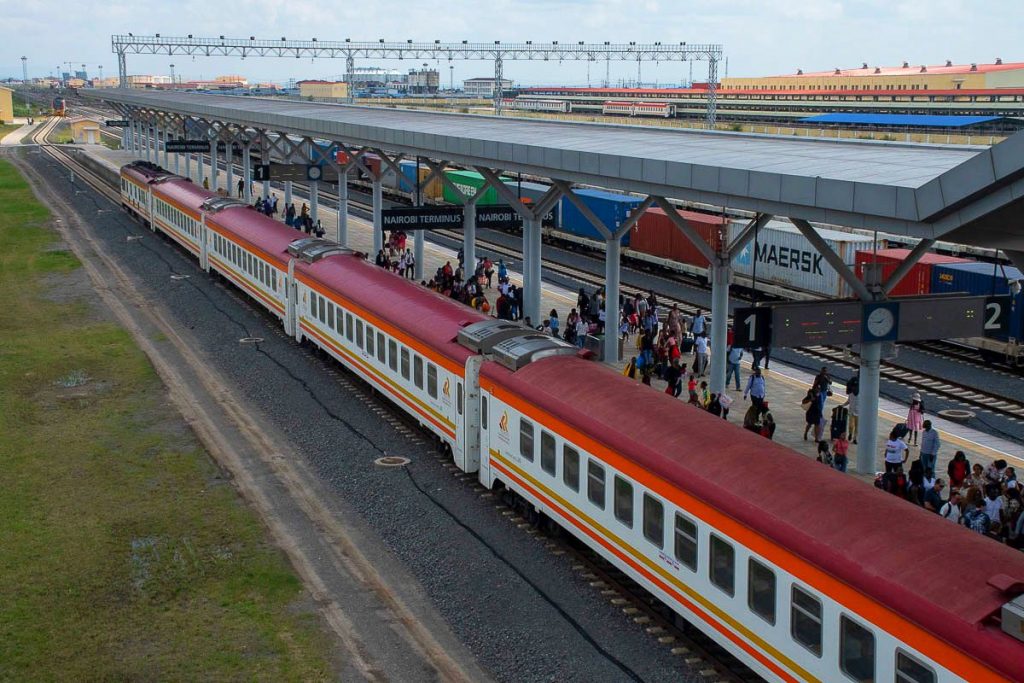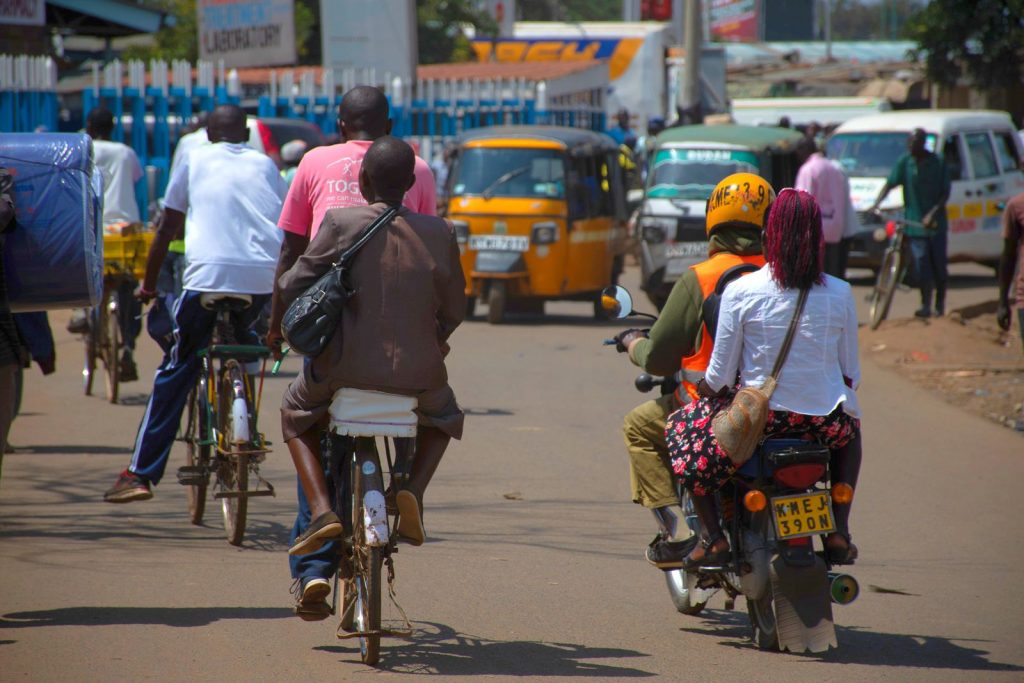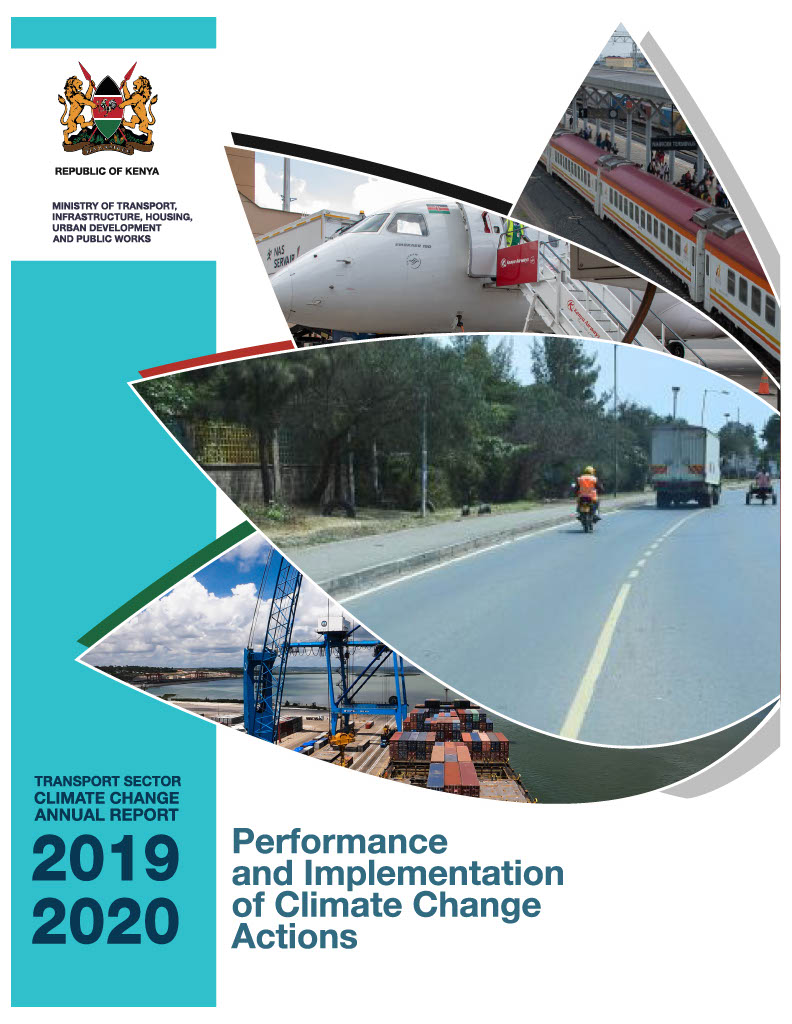
The updated NDC sets out two important developments from its first NDC, which was submitted in December 2016. As compared to the first NDC target of 30% GHG emission reduction, the updated NDC commits to lower GHG emissions by 32% by 2030 relative to the business as usual scenario. While the first NDC was fully conditional to international support, the updated NDC intends to mobilize domestic resources to meet 13% of the estimated USD 62 billion implementation costs.
The transport sector makes up the biggest share of petroleum consumption in Kenya; as such about 67% of Kenya’s energy-related CO2 emissions and 11.3% of Kenya’s total GHG emissions in 2015 came from transport-related activities (GHG inventory report, 2019). Therefore, Kenya explicitly mentions its endeavour to implement low carbon and efficient transportation systems in its updated NDC. Moreover, adaptation programmes are further elaborated in comparison to the first NDC and now consist of three priority actions focused on road infrastructure. These are:
The NDC update process was spearheaded by the Ministry of Environment and Forestry through the Climate Change Coordination Unit, with support from the GIZ NDC Assist project. It involved comprehensive consultations with various stakeholder groups, such as those representing national and county governments, private sector, civil society, gender focal points, and economic sectors including transport. As a consequence of the COVID-19 pandemic, nearly all consultations were held virtually. The stakeholder consultations aimed to capture the progress and challenges associated with sector-specific actions outlined in the key documents that support the NDC implementation, such as the National Climate Change Action Plan (NCCAP) and the National Adaptation Plan (NAP). The consultations also intended to establish a multi-level governance and stakeholder coordination for the execution of the outlined actions within the sectors.


Though the updated NDC does not explicitly outline any transport focused mitigation targets, it does refer to the second NCCAP (2018-2022). The BMU IKI funded project, Advancing Transport Climate Strategies (TraCS), implemented by GIZ and the State Department of Transport supported the revision of the transport chapter of the second NCCAP (2018-2022) through the assessment and prioritisation of potential priority mitigation actions for the transport sector.
While the first NCCAP (2013-2017) set a holistic guidance to Kenya’s climate resilience pathway, the second NCCAP (2018-2022) sought to streamline this further towards the NDC goals. Seven priority climate action areas including energy and transport have been outlined in the second NCCAP. Key actions for the transport sector include:
The NDC update provided a great opportunity to the transport sector to reflect its importance for Kenya’s GHG emission balance as well as to account for the implementation of the outlined NCCAP actions. To provide further details on the intended mitigation and adaptation actions, Kenya’s Transport Sector Climate Change Annual Report for the year 2018/2019 and the consecutive year 2019/2020 have been compiled and published.


The efforts for mitigation and adaptation in transport as outlined in the NDC are continuously implemented through the NCCAPs. This being said, the next NCCAP for the period of 2023 to 2027 provides another opportunity to refine measures and targets.
Find the full text NDC at UNFCCC and the second NCCAP (2018-2022) at Ministry of Environment and Forestry.
 ©GIZ/James Ochweri
©GIZ/James Ochweri
Verena Flues